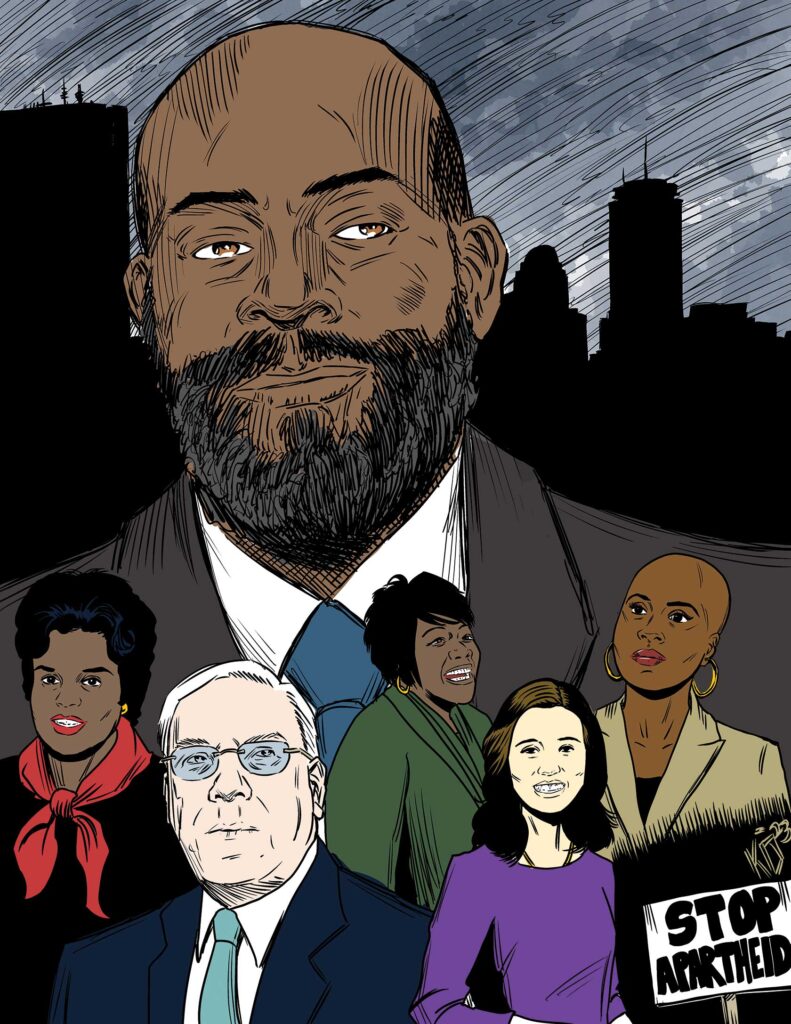
What is the measure of a man, or any person for that matter? It is what the person leaves behind after departing this world.
When I received the call from my good friend Mike King informing me his dad had left us after 94 years of life, I was hit with many emotions. But my sadness soon gave way to gratitude for the measure of this man we lost. As my young sons and their friends say: “This brother here! This leader here! This legend here!”
Mel King’s impact was felt not only locally, but also nationally and internationally. Locally, in his various leadership roles, he mentored many people, and not just into politics as he did early on with Doris Bunte, Gloria Fox and so many others. On a personal level, he changed the lives of too many to count by applying his fatherly insight, not just to his own children, but every child who came into his path.
One of many examples that comes to mind is Robert Johnson, the retired UMass Boston professor. “Mel got me upwardly mobile when I was a teenager in the South End,” Johnson says. “The teens used to hang out at Harriet Tubman House. One day when I was 15, and was leaving there, I heard a voice say, ‘Hey kid, how would you like to go to college?’ It was Mel.” At the time, King was director of United South End Settlements, which operated the Tubman House. “He put me in touch with the A Better Chance program, which led to me going to college, grad school and law school. When I came home from law school, I served on the Harriet Tubman board for 30 years.” A Better Chance places students of color in college prep schools like the Commonwealth School in Boston that Johnson attended.
This is what King did every day. He looked at every person and saw what they could be. He saw their greatness, often even before they did. Literally thousands of people can tell their own version of this story. Most of the people that Mel mentored paid it forward, as Johnson did.
King became an icon for the region’s progressives. As one of my Black independent former Republican friends reminded me, Mel lost the 1983 mayoral election: “Hey, Ron. He lost.” But what my friend did not remember was that King’s campaign unified Boston’s diverse and often fractured Black community, and as a result we all won. Not just the Black community, but every community in the city.
King’s Rainbow Coalition platform led to a series of elected mayors who have governed inclusively: Ray Flynn, Tom Menino, Marty Walsh and now Michelle Wu. When King ran for mayor, Jesse Jackson came to Boston to campaign for him at a massive rally in Grove Hall. After the rally, Jackson decided to borrow King’s concept of a political Rainbow Coalition for his two runs for president, arguably clearing a path for Barack Obama to win the office two decades later.
King was also an early political supporter of gay rights, now a mainstream position in Massachusetts. As a state representative, he sponsored legislation that made the commonwealth the first state to comprehensively divest its pension funds from apartheid South Africa. Other states and the federal government followed that precedent. King’s bill came at a time when the Reagan administration was still talking about “constructive engagement” with the white racists in Pretoria, the capital of apartheid South Africa.
Through all his causes and campaigns, King was guided by humanism, a love for all people, that made him one of the best of us.
I ask you to honor the measure of this great man. Follow his lead and try to help everyone you come across. Even if you don’t understand them. Even if they don’t look like you. Even if they do not come from where you do. Even if they don’t sound like you. Even if their interests don’t seem to align with yours.
Move forward despite the fear of others, as King did. Ignore the limitations society tries to put on you, as he did. Call out the injustices that hurt all of us, as he did. Ask others to stand in the breach with you and require ourselves to be better and never hate.
The best tribute we can pay to Mel King is to remember we can make this world a better place. Mel showed us how. We have the power to make our community better if we just sit down, as he did at his legendary Sunday brunches, and break bread, talk, plan and act.







